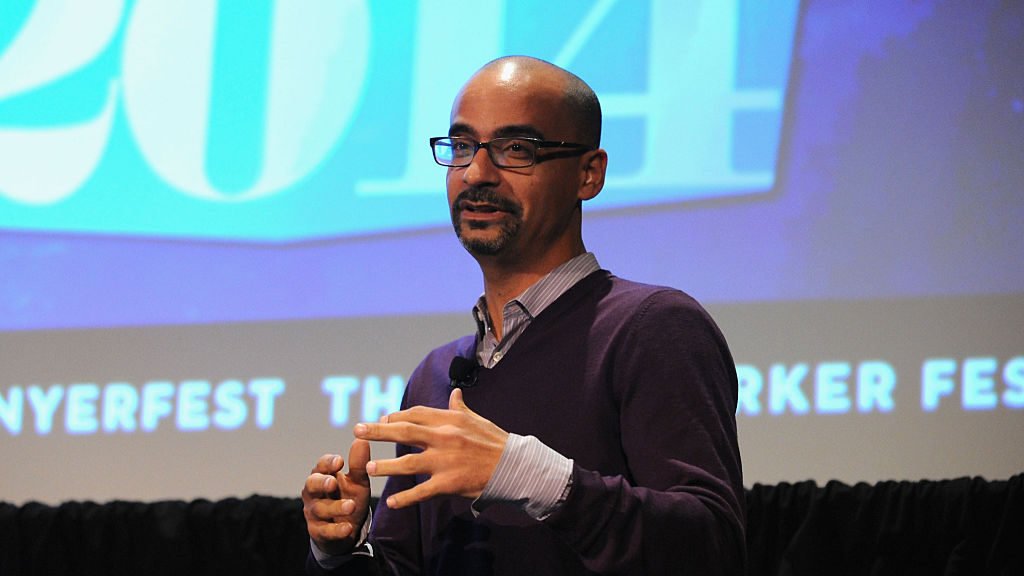Author Junot Diaz pens essay for The New Yorker detailing devastating childhood rape
The assaults occurred with DIaz was only eight years old.
Author Junot Diaz penned a poignant, heart-breaking essay about being brutally raped as a child and how that trauma has impacted his life.

Author Junot Diaz penned a poignant, heart-breaking essay about being brutally raped as a child and how that trauma has impacted his life.
Diaz, best known for his Pulitzer Prize-winning novel The Brief Wondrous Life of Oscar Wao, used his critically acclaimed prose to highlight how devastating sexual assault can be for men (especially men of color) who feel pressured to internalize their trauma.
When Diaz was eight years old, a trusted man in his life raped him on multiple occasions. After the first rape, the predator told young Diaz he had to come back the next day or he would be “in trouble.” Diaz did as he was told and was raped again.
Diaz, an Afro-Latino of Dominican heritage talked about how his sense of identity shifted in the wake of his assaults in a recent essay for the The New Yorker.
In the essay Diaz explains the trauma of being sexually assaulted as a child saying, “More than being Dominican, more than being an immigrant, more, even, than being of African descent, my rape defined me. I spent more energy running from it than I did living. I was confused about why I didn’t fight, why I had an erection while I was being raped, what I did to deserve it. And always I was afraid—afraid that the rape had ‘ruined’ me; afraid that I would be ‘found out’; afraid afraid afraid. “Real” Dominican men, after all, aren’t raped. And if I wasn’t a ‘real’ Dominican man I wasn’t anything. The rape excluded me from manhood, from love, from everything.”
READ MORE: Killer Mike tries to come for Joy Ann Reid and comes up short
It took decades for the 49-year-old writer to seek professional help or even to tell anyone at all about his sexual assault. The intervening years were filled with cruel waves of depression and anger that manifested in bouts of rage, self-harm, alcoholism, and more than one suicide attempt. Noticing one particularly long stretch of depression as a teen, Diaz’ mother (not knowing the cause of the depression) told him what a lot of POC families say—just pray it away, except that was not an option for Diaz.
READ MORE: Charlamagne reveals how Tyler Perry helped him deal with child molestation
Long-Term Effects of Trauma
Diaz began to wear what he calls a “mask,” just trying to maintain and survive each day. Many times in relationships, he toggled between being unable to maintain an erection to being a rampant womanizer. When Diaz did manage to enter into romantic relationships with women who he readily admits did their best for him, he found ways to sabotage the situations. He didn’t feel worthy of healthy, loving relationships.
With one woman, he says he was overwhelmed by how great her family was to him.
“She loved the shit out of me. Brought me home to her family, and they loved me, too. It was the first truly healthy family I’d been exposed to. Which you would think would have been a good thing,” wrote Diaz.
“Wrong. The longer we were together, the more her family loved me, the more unbearable it all got. There was only so much closeness a person like me could endure before I needed to fly the f**k away. I had long bouts of depression, drank more than I’d ever drunk, especially during the holidays, when they were all at their happiest. One day, for no reason at all, I found myself saying, We have to break up. There was absolutely no precipitating anything,” wrote the Drown author about the his romantic failures.
With another woman who was actually engaged to Diaz, he began cheating on her with multiple partners, leaving a long, sloppy digital trail that was easy enough to discover. She left and didn’t come back leaving him heartbroken. Months later, a friend stopped his drunken attempt to hurl himself off of a rooftop.
READ MORE: RHOA’s Kenya Moore breaks baby news during volatile reunion show
In the decade since that incident, Diaz found the courage to tell his loved ones what happened to him as a child and has also sought professional help—going to therapy twice a week.
Today, Diaz is in a relationship with a woman who knows the whole story.
“There are still times when the depression hammers down and months vanish out from under me, when the suicidal ideation returns. The writing hasn’t come back, not really. But there are good stretches, and they are starting to outnumber the bad. Every year, I feel less like the dead, more a part of the living,” wrote Diaz about the reality of living with trauma.
READ MORE: Steve Harvey’s wife in hot water for using “R-word” on social media
“The intrusions are fewer now, and when they come they don’t throw me completely. I still have those horrible dreams every now and then, and they are still foul as f**k, but at least I have resources to deal with them.”
Junot Diaz joins other celebrity men of color like Charlamagne, Kenny Lattimore, who have also shared their stories of childhood sexual assault.
